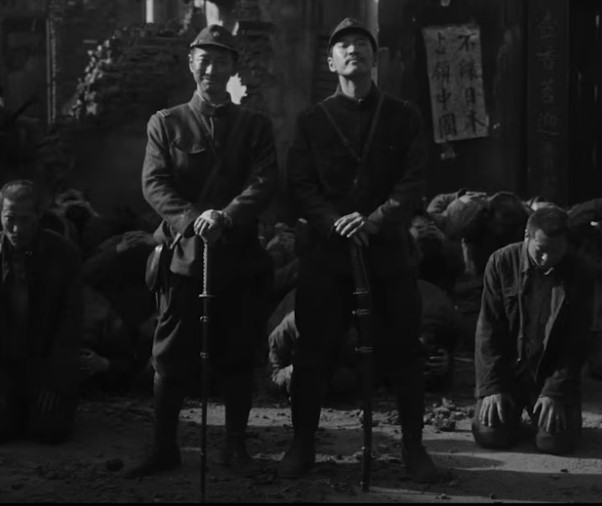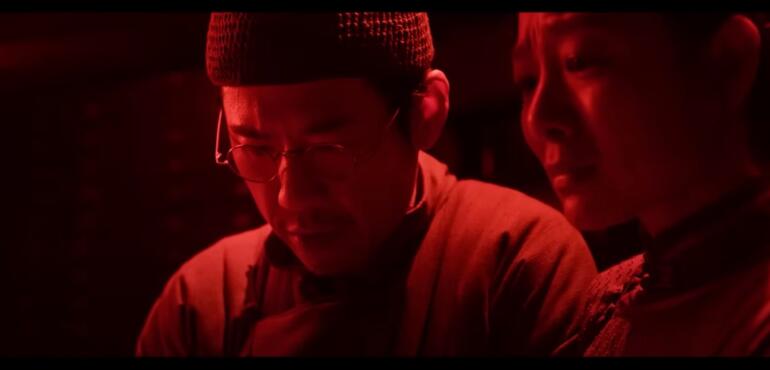Shen Ao’s “Dead to Rights” succeeds in what the best war movies have always done well, and that is to show audiences that war is hell. But it’s not your typical Hollywood war spectacle. There are no sweeping battle scenes or soaring music accompanying the arrival of soldiers on the verge of victory. Instead we see a film that’s set in an occupied Nanjing, China, full of horrific violence and suffering under a brutal Japanese occupying force. Most of the scenes take place mostly in a photo studio – a place that becomes both a prison and an unexpected arsenal. It’s this photo studio that serves as the film’s most visible and important character.
Ahmad Coo is the executive producer for the Global Business show on CGTN America. His analysis represents his views alone.
In “Dead to Rights” the photo studio is also the perfect purveyor of truth. Every processed negative and printed photograph are capsules of reality, and more importantly, each print is an indictment. The director painstakingly recreates the process of developing photographs – the chemicals and the ghostly visages that emerge on the photographic paper. Any google search on “Nanjing massacre” will bring up these images if the reader is so inclined to see. But be warned, the photographs are graphic and horrifying.

Japanese soldiers Courtesy: China Film Group
But it’s important to highlight that the Japanese soldiers in the film are not depicted as cartoonish villains, nor as abstractions. They are rendered with the banality of cruelty: Taking staged propaganda photos with children, smiling stiffly as if atrocity could be air-brushed into benevolence. It is this banality that Shen eviscerates. By intercutting with real archival images, the film forces us to see the fraudulence of their “civilized” self-portraits. The result is fury at their casual deceit.
It is worth highlighting why “Dead to Rights” move so many in China today. The Nanjing Massacre, often downplayed or distorted in foreign narratives, is not a mere historical footnote—it is a wound still raw. Shen’s film does not attempt “balance,” nor should it. To demand balance in depicting a genocide is itself obscene. What the director insists on is accuracy with purpose. Every photograph reproduced on screen is drawn from research, every vignette anchored in documented testimony. This is not sensationalism; it is education via the box office.

Wang Xiao (left) and Wang Zhen Er in the dark room
In this sense, “Dead to Rights” aligns itself with global works of moral witness like “The Act of Killing” and “Schindler’s List”. But Shen is not parroting the West’s grammar of remembrance. He invents his own, rooted in the Chinese experience, and refuses to translate it into a more palatable version for foreign critics. Millions of Chinese, young and old, crowded into theaters not to be entertained, but to affirm that the past cannot be erased.
“Dead to Rights” is also a geopolitical act. In an age where revisionism creeps into textbooks abroad, where denialists grow bolder, China’s insistence on cinematic truth is not propaganda but reclamation. Compare this with Hollywood’s penchant for downplaying U.S. aggression against other countries, wrapping them in personal redemption tropes such as “The Hurt Locker”. Shen refuses such narrative tools. There is no redemption for perpetrators. There is only justice through truth. Western critics who dismiss “Dead to Rights” as Chinese government propaganda should look at their own fallibility. If “Schindler’s List” was celebrated as speaking truth to power, why should “Dead to Rights” be treated differently? Is it because the victims are Chinese, the filmmaker Chinese, the memory Chinese?
This is why the film matters — it challenges not only western narratives and fights revisionist history, but also the global hierarchy of whose suffering counts. To watch “Dead to Rights” is to feel rage sharpened into clarity. Rage at Japan’s atrocious acts, rage at erasure, rage at the quiet complicity of a world too willing to turn their backs to a horrifying period of history. But it is also to feel pride — not shallow patriotism, but pride in a cinema that dares to serve as a speaker of truth. Shen Ao has crafted not just a film, but a weapon for remembering.
 CGTN America
CGTN America
 (From left to Right) Gao Ye, Eric Wang, Zhou You, Liu Haoran, Wang Zhener, Yang Enyou, Wang Xiao Courtesy: China Film Group
(From left to Right) Gao Ye, Eric Wang, Zhou You, Liu Haoran, Wang Zhener, Yang Enyou, Wang Xiao Courtesy: China Film Group

